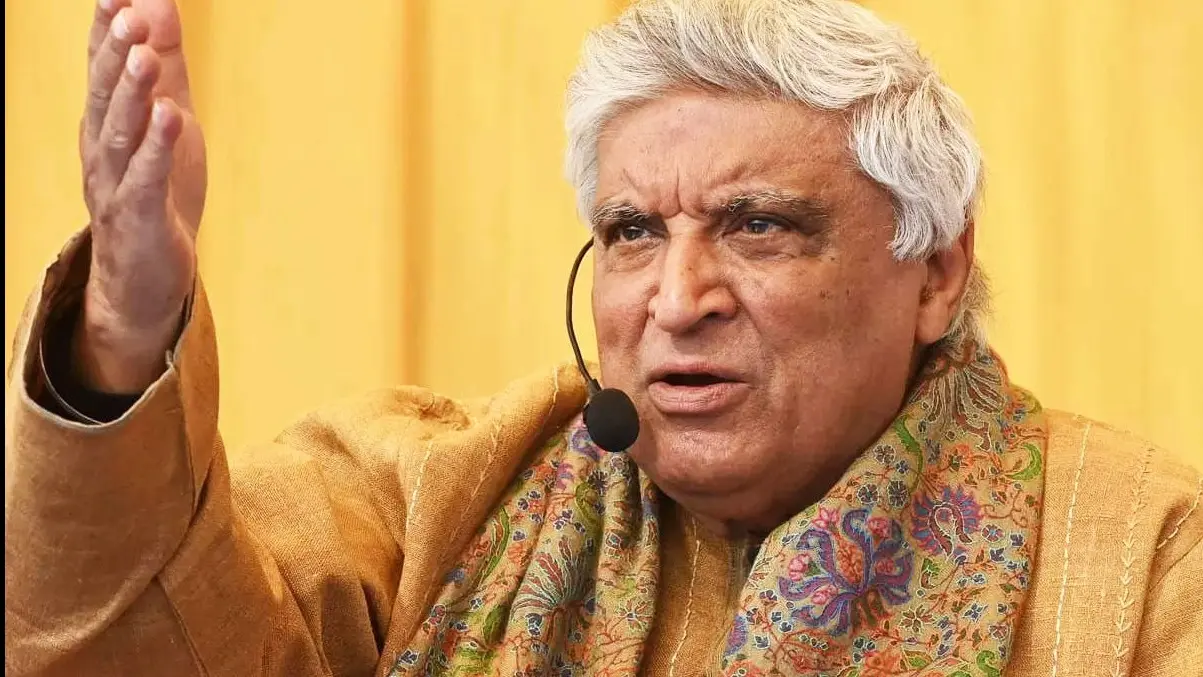Javed Akhtar: The Living Legend of Bollywood, Poetry, and Social Justice
Introduction
In the tapestry of Indian culture, few threads shine as brightly as Javed Akhtar. A name synonymous with soul-stirring poetry, iconic Bollywood scripts, and fearless social commentary, Akhtar’s 50-year career transcends artistic boundaries. From co-writing cinematic masterpieces like Sholay and Deewaar to winning National Awards for timeless lyrics like “Kal Ho Naa Ho,” his genius is unmatched. But beyond the glitz, Akhtar remains a vocal advocate for secularism and justice, often igniting national debates. This deep dive explores his journey, legacy, controversies, and enduring impact on India’s cultural and social fabric.

Early Life: Roots of a Revolutionary Wordsmith
Born on January 17, 1945, in Gwalior, Javed Akhtar inherited rebellion and creativity. His father, Jan Nisar Akhtar, was a progressive Urdu poet; his mother, Safia Akhtar, a writer. The family’s communist leanings and involvement in India’s freedom struggle seeded young Javed’s dual passions: art and activism.
Orphaned at 10, he moved to Bombay (now Mumbai), where Urdu poetry sessions in dimly lit cafes became his university. As he recounted:
“I grew up on the streets of Bombay, absorbing stories of real people—their struggles, joys, and dreams. That became my muse.”
Salim-Javed: The Duo That Revolutionized Bollywood
In 1971, Akhtar partnered with Salim Khan to form Salim-Javed, India’s first superstar screenwriting team. Their gritty, character-driven narratives broke Bollywood’s formulaic mold:
| Film | Year | Legacy |
|---|---|---|
| Zanjeer | 1973 | Launched Amitabh Bachchan’s “Angry Young Man” era |
| Deewaar | 1975 | Explored class struggle; iconic dialogue “Mere paas maa hai” |
| Sholay | 1975 | Voted “Greatest Indian Film” by BBC |
| Don | 1978 | Redefined the anti-hero trope |
Their scripts mirrored societal tensions—corruption, inequality, and moral ambiguity—making audiences see their own lives on screen. The duo split in 1982, but Akhtar’s solo journey was just beginning.

Lyricism & Poetry: Weaving Magic with Words
Transitioning to poetry and songwriting, Akhtar’s pen birthed anthems that defined generations:
Iconic Creations:
-
“Ek Ladki Ko Dekha” (1942: A Love Story) – A love ballad that revived Urdu poetry in pop culture.
-
“Kal Ho Naa Ho” (2003) – A philosophical ode to hope, winning the National Award.
-
“Jashn-e-Bahara” (Jodhaa Akbar) – Blended classical imagery with romanticism.
His poetry collections—Tarkash (Quiver) and Lava—sold millions, proving verse could be both profound and popular.
Personal Life: Love, Loss, and Legacy
Akhtar’s relationships reflect his unconventional spirit:
-
Honey Irani (1972–1984): Married the screenwriter; parents to filmmakers Farhan and Zoya Akhtar.
-
Shabana Azmi (1984–present): Union with the legendary actress ignited creative and activist synergy. Their Mumbai home became a hub for artists and reformers.
“We don’t just share a home; we share convictions,” Shabana once remarked about their 40-year partnership.
Awards & Global Recognition
-
5 National Film Awards for Best Lyrics
-
Padma Shri (1999) & Padma Bhushan (2007)
-
Sahitya Akademi Award (2013) for Urdu poetry
-
Richard Dawkins Award (2020) for defending rationalism
The Activist: A Voice Against Injustice
Akhtar’s courage extends beyond art. As a Rajya Sabha MP (2010–2016), he championed artists’ rights and secularism. His recent interventions sparked nationwide discourse:
1. Pahalgam Terror Attack (2023)
When militants targeted Hindu pilgrims in Kashmir, Akhtar condemned attempts to politicize the tragedy:
“This attack wasn’t against a government—it was against India. Terrorism has no religion.”
Read his full statement on NDTV.
2. Honeymoon Murder Case (2023)
After newlyweds were murdered in Uttarakhand, Akhtar critiqued media sensationalism:
“Why does society only wake up when victims are privileged? Thousands die unnoticed.”
Explore his views here.
3. Fight Against Extremism
He co-founded the Muslim Intellectual Forum, opposing religious dogma:
“Blind faith breeds violence. We must embrace reason.”
Philosophy: Art as a Weapon for Change
Akhtar’s work pulses with humanism:
-
Secularism: “My Islam is about love, not hate.”
-
Gender Equality: Lyrics like “Dil Hain Hindustani” celebrate female agency.
-
Unity: “India’s strength is its diversity—never let politics divide us.”
His poetry rallies against tyranny:
“Jinhe naaz hai Hind par, woh kahan hain?”
(Where are those who take pride in India?)
Legacy: The Poet Who Shaped a Nation
At 79, Akhtar remains Bollywood’s moral compass:
-
Mentored talents like Javed Ali and Swanand Kirkire.
-
Penned scripts for modern classics (Dil Chahta Hai).
-
Global lectures on Urdu’s lyrical power at Oxford and Harvard.
As director Zoya Akhtar says:
“Appa taught us that stories must mirror truth—even when it stings.”
Conclusion: The Unfinished Symphony
Javed Akhtar is more than a lyricist or activist—he’s India’s cultural conscience. From scripting Sholay’s fiery dialogues to condemning terrorism, his life screams one message: silence is betrayal. In an era of polarization, his voice bridges divides, reminding us that art and justice are inseparable. As he once mused:

